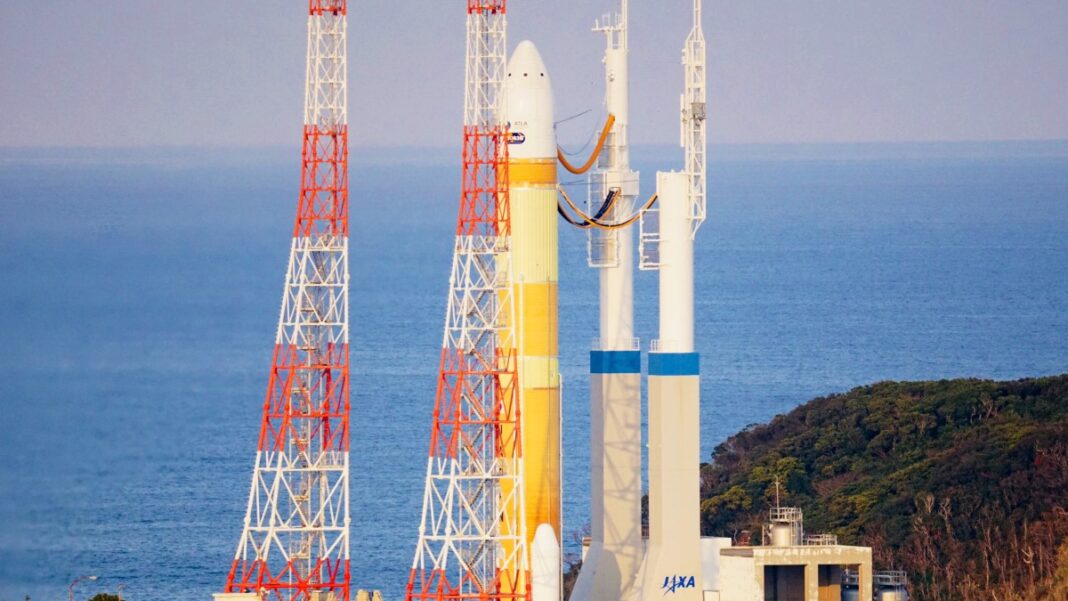JAPAN: Japan’s space agency, the Japan Aerospace Exploration Agency (JAXA), is set to launch its new flagship rocket, the H3, for the first time on Tuesday, March 7.
JAXA has scheduled the launch for between 10:37 a.m. and 10:44 a.m. local Japan time from the Tanegashima Space Center launch site in Kagoshima Prefecture, southwestern Japan.

The H3 rocket, which replaces Japan’s previous mainstay launch vehicle, the H2A rocket, is designed to be flexible and cost-effective.
The H3 will carry a land observation satellite, the Advanced Land Observation Satellite (ALOS-3), on its debut launch.
The H3’s initial launch, planned for February 16, was aborted due to an anomaly in the vehicle’s electrical system that supplies power to the core-stage engines.
However, JAXA and its partner Mitsubishi Heavy Industries worked hard to resolve the glitch and prepare the rocket for another liftoff attempt.
Bad weather in the region forced JAXA to reschedule the original liftoff set for March 6.
The ALOS-3 satellite, also known as Daichi-3, is a 3-ton Earth-observing spacecraft that will study the planet in detail for various applications.
JAXA expects its unique imaging capabilities to contribute significantly to upgrading global geospatial information and research and applications for monitoring the coastal and vegetation environment.
The space agency designed the satellite to assist in disaster management situations, thus making it one of the most critical tools for central and local governments.
The H3 rocket will launch during a six-and-a-half-minute window that opens at 8:37 p.m. EST on March 7. JAXA will stream the launch live.
While the first mission is a test flight, the H3 will carry an operational payload, making it a significant milestone in Japan’s space program.
The launch represents a significant step forward for Japan’s space programme and demonstrates its commitment to exploring space and developing cost-effective launch vehicles.
If all goes according to plan, the H3 rocket’s launch will pave the way for more advanced space exploration missions and scientific discoveries.
Also Read: NASA Nominates First Woman for the Position of Science Chief



